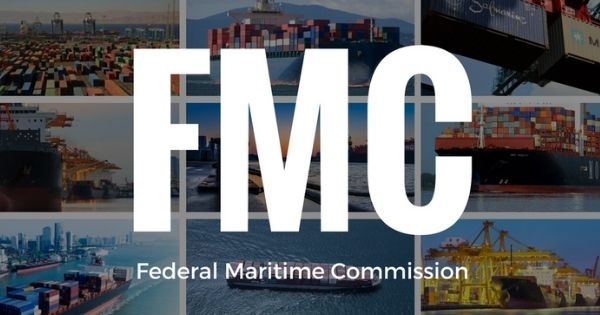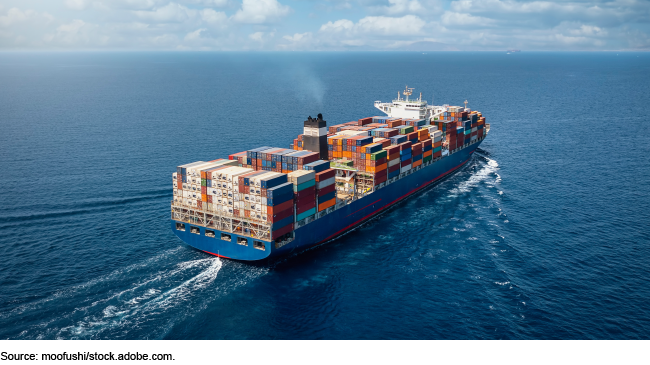










The Jones Act, enacted in 1920, mandates that all goods transported between U.S. ports must be carried on ships that are built, owned, and operated by U.S. citizens. This legislation has disproportionately harmed the economies of Alaska and Hawaii by inflating prices on essential goods, with estimates suggesting that it costs these economies billions of dollars annually. Legal challenges against the Act have largely failed, but there are indications that the Port Preference Clause in the Constitution may provide a basis for future lawsuits aimed at reforming or repealing the Act. Originally, the Jones Act was designed to protect mainland shipping interests, often at the expense of Alaskan and Hawaiian economies. [c692071a]
Recently, the Grassroot Institute of Hawaii has argued that the Jones Act is unconstitutional as it applies to Hawaii and Alaska. They claim it violates the Port Preference Clause of the U.S. Constitution by favoring mainland ports over those in Hawaii and Alaska. The law reportedly costs Hawaii residents about $1.2 billion annually, or $1,800 per family of four. Joshua Thompson from the Pacific Legal Foundation suggests that the Act's protectionist purpose was justifiable in 1920 but is no longer valid since Hawaii and Alaska became states in 1959. The Grassroot Institute plans to continue advocating for reform of the Jones Act. [88f4aedb]
The economic impact of the Jones Act has been significant, particularly in terms of inflated costs for food, construction materials, and fuel. Estimates indicate that it costs Alaskan and Hawaiian economies billions of dollars annually, exacerbating the financial burden on residents and businesses. The Act was originally designed to protect the shipbuilding industry, particularly in Washington state, which has led to discriminatory effects against Alaskan and Hawaiian shipping. [54392384]
In the broader context of U.S. maritime policy, Congress is currently addressing critical challenges that threaten national security and economic stability. Recently, Rep. Michelle Steel introduced the Secure Our Ports Act, which prohibits companies owned by U.S. adversaries—specifically Chinese, Russian, Iranian, or North Korean entities—from operating American ports. This legislation aims to protect U.S. supply chains and economic security, particularly in the greater Los Angeles area, which is home to major U.S. ports. The bill was introduced during 'China Week,' coinciding with the House passing 25 related bills, although some Democrats criticized the lack of bipartisan negotiation. [e836ef91]
Additionally, analyses reveal that U.S. shipyards currently rank 15th globally in output, with shipbuilding costs four times higher than the world average. The Jones Act has significantly hampered the competitiveness of American shipping, resulting in the U.S. flagged fleet halving in size over the past 40 years, leaving only 185 large cargo ships in operation. A 2017 report indicated a deficit of 1,838 mariners necessary for effective sealift operations, raising concerns about the country's readiness in times of crisis. [f3173f2d]
Congress has begun to address these pressing issues, but proposed solutions have been criticized as inadequate. There are growing calls for updating the Jones Act and eliminating cargo preference laws that restrict competition and inflate costs. Suggestions for reform include establishing a second ship registry to encourage more competitive practices and revising subsidy programs to better support the maritime industry. Advocates argue that bold reforms are essential to revitalize U.S. maritime policy and ensure it meets the demands of national security and economic needs. [f3173f2d]
The Biden administration has also been active in addressing supply chain disruptions exacerbated by the pandemic and geopolitical tensions. The establishment of the supply-chain task force aims to improve the throughput of shipping infrastructure and prevent acute problems that have affected consumers and businesses alike. This initiative includes the expansion of the real-time supply chain demand tracker, FLOW, which aims to provide a comprehensive view of port and inland network congestion. [35fabee2] [18994dca] [0611d641]
Moreover, the Department of Transportation's (DOT) initiative, FLOW, has begun publishing data on inland freight hubs, which includes major container ports and retailers. This data-sharing platform is designed to enhance visibility and efficiency within the supply chain, ultimately contributing to the reduction of inflationary pressures caused by shipping costs. Transportation Secretary Pete Buttigieg emphasized the administration's commitment to strengthening American supply chains, which is crucial for both economic recovery and national security. [471232e0]
The Federal Maritime Commission (FMC) has also taken steps to support U.S. exporters by ruling that liner operators cannot refuse to move containers already booked, addressing the challenges faced by exporters in securing shipping space. This ruling is part of a broader effort to ensure that U.S. shipping remains competitive and responsive to the needs of the economy. [7e64b99c] [11764932]
In Guam, the impact of the Jones Act is particularly pronounced, with high shipping costs affecting the local economy. A study from 1996 indicated that families on the island were paying significantly more due to excessive shipping costs, a situation that has not improved over the years. Advocates for Guam are calling for the repeal or significant reform of the Jones Act to alleviate these burdens and promote economic prosperity on the island. [9a95fcbf]